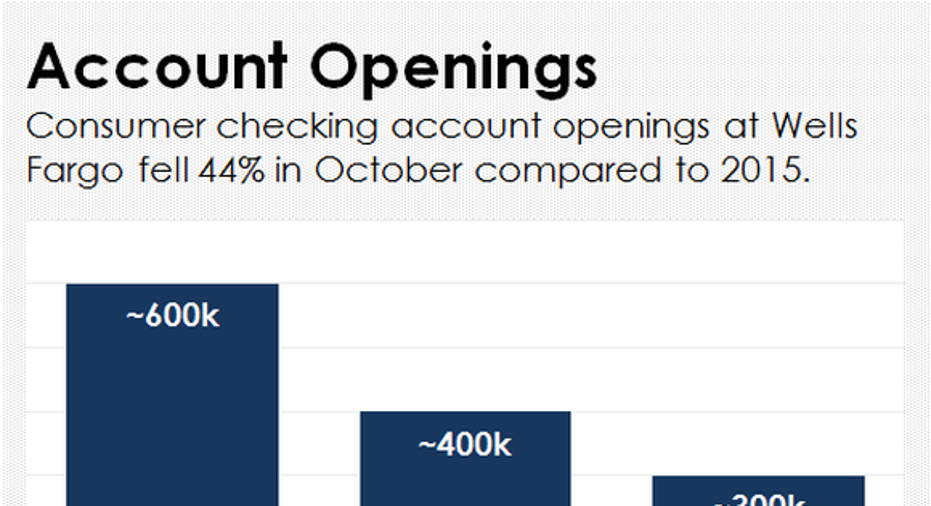What Percent of Wells Fargo Customers Are Closing Their Accounts?

Image source: iStock/Thinkstock.
Wells Fargo (NYSE: WFC) released data on Thursday showing that new account openings have dropped, but that few customers are closing their accounts in the wake of revelations that employees at the bank opened up to 2 million fake accounts for customers from 2011 to 2015.
"Trends continued as expected in October, with relatively stable deposit balances and transaction levels, but slower new account openings," said consumer banking head Mary Mack. "Because the sales practices settlement was announced on September 8th, October data reflects the first full month of impact."
The good news...
The best news from the report relates to the fact that Wells Fargo's current customers aren't fleeing in droves or going out of their way to avoid interactions with the bank.
Customer-initiated closures of checking accounts rose 3% in October compared to the previous month and to October 2015. Because some of these accounts would have been closed regardless of the scandal, as a certain level of customer attrition will always be present, this shows that the inconvenience of switching banks outweighs any issues of trust that customers may have with Wells Fargo.
Along the same lines, while the data revealed a 22% year-over-year drop in customer interactions with Wells Fargo branch bankers, not all of that is likely to be in response to the fake-account scandal. Customers at all banks visit branches less often nowadays, choosing to use their mobile banking apps to check their account balances and deposit checks. To this end, the number of online and mobile sessions on Wells Fargo's digital distribution channels rose 7% in October versus the same month last year.
The bad news...
The bad news is that new account openings have plummeted following Wells Fargo's decision to eliminate sales goals and dial down marketing efforts. The number of consumer checking accounts opened in October fell by 27% compared to September and by 44% relative to the year-ago period.
Data source: Wells Fargo. Chart by author.
The same was true with credit card applications. Applications for Wells Fargo-branded cards last month dropped 35% on a sequential basis and by 50% compared to October 2015.
"In October, we were pleased to see that in general our existing customers were actively using their accounts and valued their relationships with Wells Fargo," said new CEO Tim Sloan. "As expected, we continued to see declines in new account openings."
None of these results should come as a big surprise to investors. The questions that should be at the top of the bank's shareholders' heads now are: First, how long will new account openings remain so low on a comparative basis? And second, what impact will this have on Wells Fargo's long-term growth?
Fortunately, the bank's biggest shareholder, Warren Buffett, has decided to stick with Wells Fargo, saying in a recent interview on CNN that he hasn't sold a single share of Berkshire Hathaway's 10% stake in the bank and that he still considers it to be an "incredible institution."
Forget the 2016 Election: 10 stocks we like better than Wells Fargo Donald Trump was just elected president, and volatility is up. But here's why you should ignore the election:
Investing geniuses Tom and David Gardner have spent a long time beating the market no matter who's in the White House. In fact, the newsletter they have run for over a decade, Motley Fool Stock Advisor, has tripled the market.*
David and Tom just revealed what they believe are the ten best stocks for investors to buy right now... and Wells Fargo wasn't one of them! That's right -- they think these 10 stocks are even better buys.
Click here to learn about these picks!
*Stock Advisor returns as of November 7, 2016
John Maxfield owns shares of Wells Fargo. The Motley Fool owns shares of Wells Fargo. Try any of our Foolish newsletter services free for 30 days. We Fools may not all hold the same opinions, but we all believe that considering a diverse range of insights makes us better investors. The Motley Fool has a disclosure policy.



















